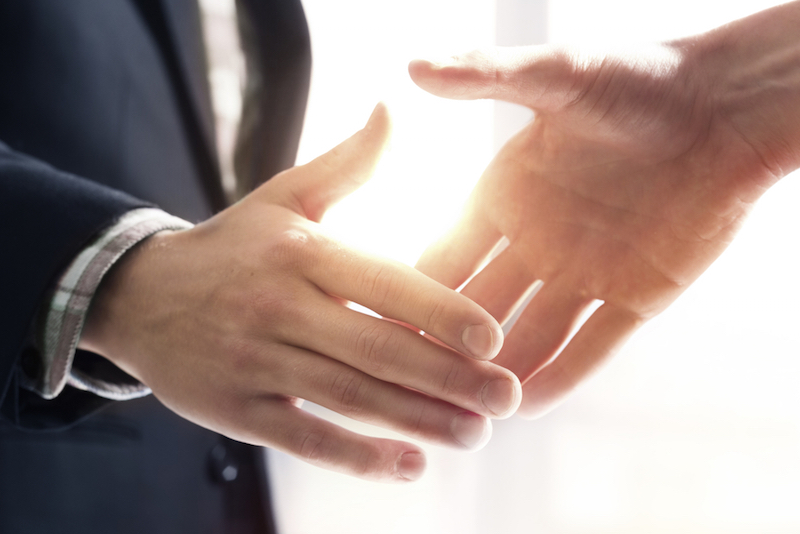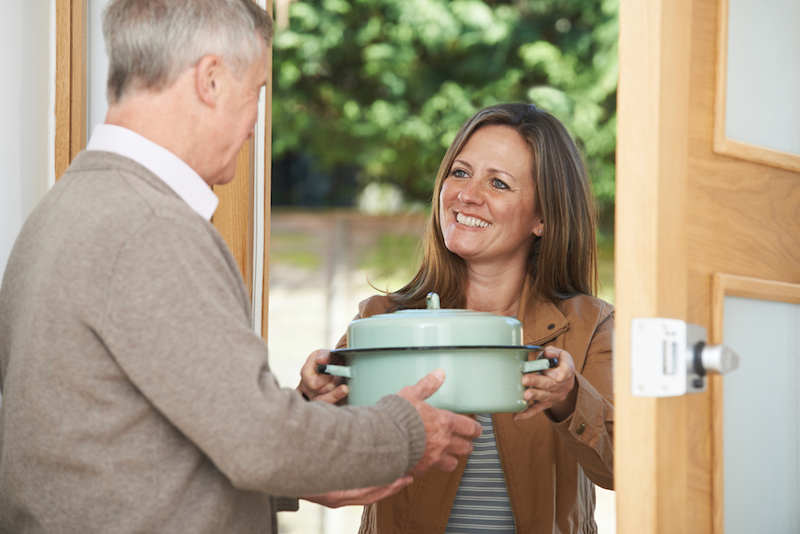No 'I' in Team: 5 Cooperation Findings from Science
Introduction: Why We Work Together

Humans are exceptional in part for their ability to cooperate. Humanity's closest relative, the chimpanzee, can thrive in societies up to about 150 strong; humans build coalitions of hundreds of millions.
Clearly, though, cooperation is complex. People aren't always up for it, and even wholehearted attempts to work together can fall apart. Because cooperation is needed everywhere, in not only all workplaces and relationships, but also the loftiest human endeavors, researchers are keen to study how it works, and what factors make it go smoothly, or deteriorate. Here are five intriguing findings about human cooperation.
Mind meld

Turns out there is an "I" in team … kind of. When paired up in a cooperative task, people tend to merge their thoughts about themselves with their thoughts about their partners, according to research published in July 2016 in the journal Neuron.
The researchers asked people to take part in cooperative and competitive tasks while in a functional magnetic resonance imaging (fMRI) scanner. The participants were given (fake) feedback on their own performance, as well as the performance of the person they were working with or competing against. In cooperative scenarios, people rated themselves as better performers when they thought their partners were doing well; they also rated their partners better if they thought they themselves were hitting it out of the park.
This "self-other mergence" appeared to be linked to a region of the frontal lobe called area 9, the researchers said. The stronger the brain signal in this region, the more likely someone was to blur the lines between his or her own performance and his or her partner's.
"This is a study that highlights that neural signals representing ourselves or other people are much more complex than we previously thought," said Christian Ruff, a neuroeconomist at the University of Zurich in Switzerland who was not involved with the research.
Carrot and stick

Want to encourage cooperation in a group? You've got options. Both rewards and punishments are equally effective at getting people to work together, a 2011 study found. [10 Things That Make Humans Special]
Get the world’s most fascinating discoveries delivered straight to your inbox.
The researchers had participants play a game in which they could contribute money to a communal pot for later distribution. If they wanted to, players could freeload by contributing nothing or very little; they'd still get an equal portion of the pot at the end. But in some cases, researchers publicly named either the two most generous players (rewarding them with praise) or the two most miserly (punishing them with shame).
Both shame and praise increased cooperation among players by 50 percent, the researchers found.
"A shame tactic can be effective, but rather surprisingly, we've also found that apparently honor has an equally strong effect on encouraging people to cooperate for the common good," study researcher Christoph Hauert, a professor of mathematics at the University of British Columbia, said in a statement.
The upside of money

Here's a surprising finding: Giving people money increases the chance they'll cooperate.
In a laboratory experiment, researchers at Chapman University in California asked participants to interact with one another in group scenarios in which they had to decide whether to help each other. Results showed that people mostly behaved in self-interested ways, particularly as the size of the groups increased (they ranged from two people to 32 people).
But then the researchers introduced a twist: They gave participants tokens. Suddenly, cooperation increased. People used the tokens like money, exchanging them in return for help — even though the tokens had no intrinsic value whatsoever.
"It's not that [people] trusted others, but they trusted that others would help in exchange for a token," economic science professor Gabriele Camera told Live Science at the time of the study's publication, in 2013. The downside is that once the tokens dried up, so did the helping hands.
Conflict and cooperation

War is a clear sign that two groups aren't cooperating. But conflict with another group also increases people's desire for cooperation within their own group, a 2011 study found.
The study looked at cooperation among people in Israel during a real month-long conflict between that country and the Islamic group Hezbollah. The participants were all senior citizens living in a retirement community in Tel Aviv, and played games using real money during the study. These participants were more willing to punish others who were uncooperative and reward those who were cooperative while the war was going on than they had been nine months prior to the start of fighting.
A year after the war ended, the participants returned to their baseline level of reward and punishment. The finding was significant because the rewards and punishments came out of the participants' own pockets; they had to pay real money to enforce other people's cooperation.
Pass it on

Turns out there's real truth to the notion that good deeds ripple outward. Research published in the journal Proceedings of the National Academy of Sciences in 2010 found that when people are on the receiving end of cooperative behavior, they're more likely to go on to cooperate with someone else.
The researchers used a game in which people had to decide how much of their money to donate to a group fund. The more that individuals decided to contribute, the more that each player would ultimately take home. But if one person was generous and everyone else selfish, that person would end up losing out on cash. Thus, players had to decide how much they trusted other participants.
The researchers found that a good experience in one round of the game translated to greater cooperation in subsequent rounds, even though the subsequent rounds were played with a new group of players. For every dollar Player A gave in the first round, the recipient (Player B) gave 20 cents more in the second round, on average. And the recipient of that extra 20 cents (Player C), gave 8 cents more on average in the next round, and so on.
"These cascades of altruism triple the amount the first person gives. If I give an extra dollar, it causes everyone in the network to give a total of three extra dollars," study researcher James Fowler at the University of California, San Diego, told Live Science at the time.
Original article on Live Science.

Stephanie Pappas is a contributing writer for Live Science, covering topics ranging from geoscience to archaeology to the human brain and behavior. She was previously a senior writer for Live Science but is now a freelancer based in Denver, Colorado, and regularly contributes to Scientific American and The Monitor, the monthly magazine of the American Psychological Association. Stephanie received a bachelor's degree in psychology from the University of South Carolina and a graduate certificate in science communication from the University of California, Santa Cruz.


